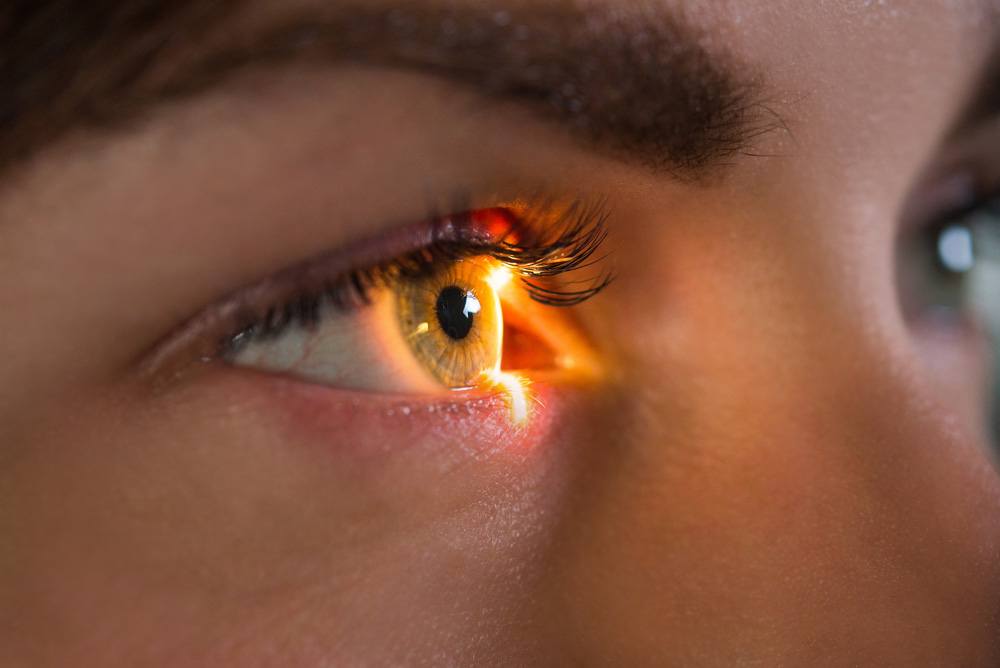Glaucoma is a condition that causes damage to the eye’s optic nerve which carries visual information from our eyes to the brain. It can lead to severe vision loss and if left untreated, total blindness. In fact, glaucoma is a leading cause of blindness throughout the United States.
One of the greatest obstacles glaucoma prevention and treatment faces is the difficulty of detecting the condition before any permanent damage has taken place. Most people who develop glaucoma experience no early warning signs or pain. Because of this, the most successful form of glaucoma diagnosis is through regular comprehensive eye examinations during which a skilled ophthalmologist can observe the early onset of glaucoma.
What You Can Start Doing Now to Avoid Glaucoma
Glaucoma has many causes and risk factors can include family history, age, high ocular pressure, and injury (among others). Other health conditions such as diabetes, migraines, and poor circulation have also been linked to glaucoma.
Although there is no guaranteed way to prevent glaucoma, there are several proactive steps you can take towards decreasing your risk and the damaging effects that come with it.
1. Get Regular Eye Exams
Comprehensive eye examinations are the only way to diagnose glaucoma and the only way to do so before any permanent damage to the optic nerve has taken place. During an eye exam, your ophthalmologist can conduct a glaucoma screening to inspect your optic nerve, ocular pressure, the drainage angle of your eyes, and test your peripheral vision. There are now very sophisticated tests which help detect glaucoma at earlier stages.
Those with no known risk factors should schedule regular eye exams based on their age:
- Age 40-54: Every 2-4 Years
- Age 55-64: Every 1-2 Years
- Age 65 & Older: Annually
If you are considered as high risk for glaucoma you should consult with your doctor about how often you should schedule eye examinations.
2. Avoid Eye Injuries & Wear Protection
Serious eye injuries can lead to the early onset of glaucoma. Injuries can cause inflammation with temporary glaucoma, or permanent structural changes in the eye which may result in glaucoma many years later. To avoid the risk of eye injuries, always wear adequate protection when participating in activities such as
3. Maintain a Healthy Diet
It is important you consume foods that benefit your eyesight. Studies have shown that foods rich in antioxidants, vitamins C & E, and omega-3 fatty acids play an important role in maintaining ocular health. Not only should you maintain an eye-friendly diet, but also one that avoids foods with high levels of salt, sugar, or caffeine. Proper nutrition supports the prevention of eye-related conditions beyond glaucoma, as well as many other health problems.
4. Quit the Smoking Habit
Quitting smoking is no easy task but studies prove that smoking tobacco increases your risk of many eye-related conditions including age-related macular degeneration, cataracts, and glaucoma.
5. Stay Active & Exercise
Regular exercise may help reduce the risk of glaucoma and lower ocular pressure. Studies have shown that moderate exercise 3 times a week can improve circulation and cardiovascular functions. This provides more oxygen to our eyes and reduces the likelihood of eye-related disease.
Seeking Treatment & Support
Glaucoma treatment includes eye medication and drops to help lower ocular pressure, laser procedures to improve drainage functionality, and ocular implants that aid in the relief of increased ocular pressure.
Often, glaucoma can be effectively treated with eye drop medications, with surgery reserved for more severe cases.
Unfortunately, any vision loss resulting from glaucoma is usually permanent and cannot be restored. However, with regular monitoring, early diagnosis, and timely treatment, the impact of glaucoma can be sharply reduced.
Seek a Trusted Glaucoma Specialist at ADV Vision Centers
Ultimately, the best way to prevent and diagnose glaucoma is through regular comprehensive eye examinations with an experienced ophthalmologist. If you are over the age of 40 or if you or a loved one has concerns regarding visual health, please call or contact online the expert and compassionate staff at ADV Vision. Schedule a FREE consultation and start down your path to better vision today!








